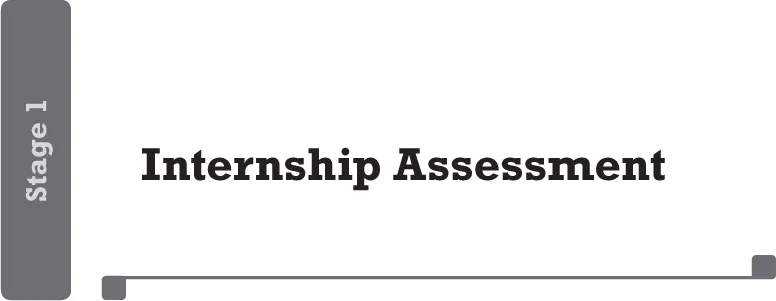
School Leader Internship
Developing, Monitoring, and Evaluating Your Leadership Experience
- 168 pages
- English
- ePUB (mobile friendly)
- Available on iOS & Android
School Leader Internship
Developing, Monitoring, and Evaluating Your Leadership Experience
About this book
School Leader Internship, 5th Edition, challenges aspiring educational leaders and interns to better assess, prepare, plan, implement, and evaluate their internship experience in preparation for certification, licensure, and advancement into school building-level leadership positions. In this updated edition, the content is organized around the latest National Education Leadership Preparation (NELP) Standards and includes intern activities that develop skills in essential areas including ethics, equity and cultural responsiveness, curriculum development, community of care, support of teachers and staff, school partnerships, and continuous school improvement. This unique book provides step-by-step guidance for interns, their supervisors, and faculty on how to initiate an internship and evaluate interns' work and is a critical resource for leadership preparation programs nationwide and the thousands of school districts that support leadership candidates.
Special Features:
- The National Education Leadership Preparation (NELP) Standards Assessment provides an understanding of the wide breadth of experience and demonstration of skills necessary for school leaders.
- Self and Superior Assessment helps students to plan according to individual need, experience, goals, and performance expectations.
- Internship Plans allow students to assess, analyze, and prepare draft individualized internship plans.
- Professional Report or Portfolio encourages students to evaluate and reflect on their experiences and plan for the future.
Frequently asked questions
- Essential is ideal for learners and professionals who enjoy exploring a wide range of subjects. Access the Essential Library with 800,000+ trusted titles and best-sellers across business, personal growth, and the humanities. Includes unlimited reading time and Standard Read Aloud voice.
- Complete: Perfect for advanced learners and researchers needing full, unrestricted access. Unlock 1.4M+ books across hundreds of subjects, including academic and specialized titles. The Complete Plan also includes advanced features like Premium Read Aloud and Research Assistant.
Please note we cannot support devices running on iOS 13 and Android 7 or earlier. Learn more about using the app.
Information

1.1 Pre- and Post-Self-Assessments of the NELP Standards
1.2 Self and Supervisor Assessment of Dispositions
1.3 School Improvement Plans/Goals Assessment
- School improvement plans and needs assessments
- Strategic plans
- Vision and mission statements
- Recent accreditation reports
- Action plans
- Other evidence of school needs and goals
1.4 NELP Performance Assessments
Demonstrating Experience and Proficiency across Standards
NELP Performance Assessment Standards and Requirements
- Assessment 3: Demonstration of candidate's instructional leadership skills, corresponding to NELP standards 1, 4, and 7. This assessment demonstration area encompasses the competencies and skills of leading a school's instructional core in curriculum, instruction, and assessment and the structures and supports for enhanced student learning.
- Assessment 4: Demonstration of candidate's leadership and management skills within a field-based setting, corresponding to NELP standards 1–3 and 6. This assessment demonstration area encompasses all dimensions of school leadership but can be focused primarily on work performed in relation to vision and priority setting, adherence to ethical principles and professional norms, developing an equitable and inclusive culture, and managing resources, systems, policies, and practices in support of effective student learning.
- Assessment 5: Demonstration of candidate's leadership skills in supporting an effective P-12 student learning environment, corresponding to NELP standards 3–4. This performance assessment demonstration corresponds most to the overall aim of the NELP standards, which is to promote the current and future success and well-being of each student and adult. To that end, this assessment demonstration requires interns to show their knowledge and skills in supporting and promoting student learning through an equitable, responsive, and inclusive school culture and effective, coherent system of curriculum, instruction, assessments, and supports. Such demonstration is intended to link the intern's work, such as through a project or task, to how it promotes an effective student learning environment.
- Assessment 6: Demonstration of candidate's leadership skills in the areas of family and community relat...
Table of contents
- Cover
- Half Title
- Title Page
- Copyright Page
- Contents
- Supplemental Downloads
- Foreword
- Preface
- Acknowledgments
- Introduction
- Stage 1 Internship Assessment
- Stage 2 Internship Preparation: Cross Cutting Themes
- Stage 3 Internship Plan Development
- Stage 4 Implementation
- Stage 5 Summative Evaluation/Final Report
- Appendices
- References
- Index